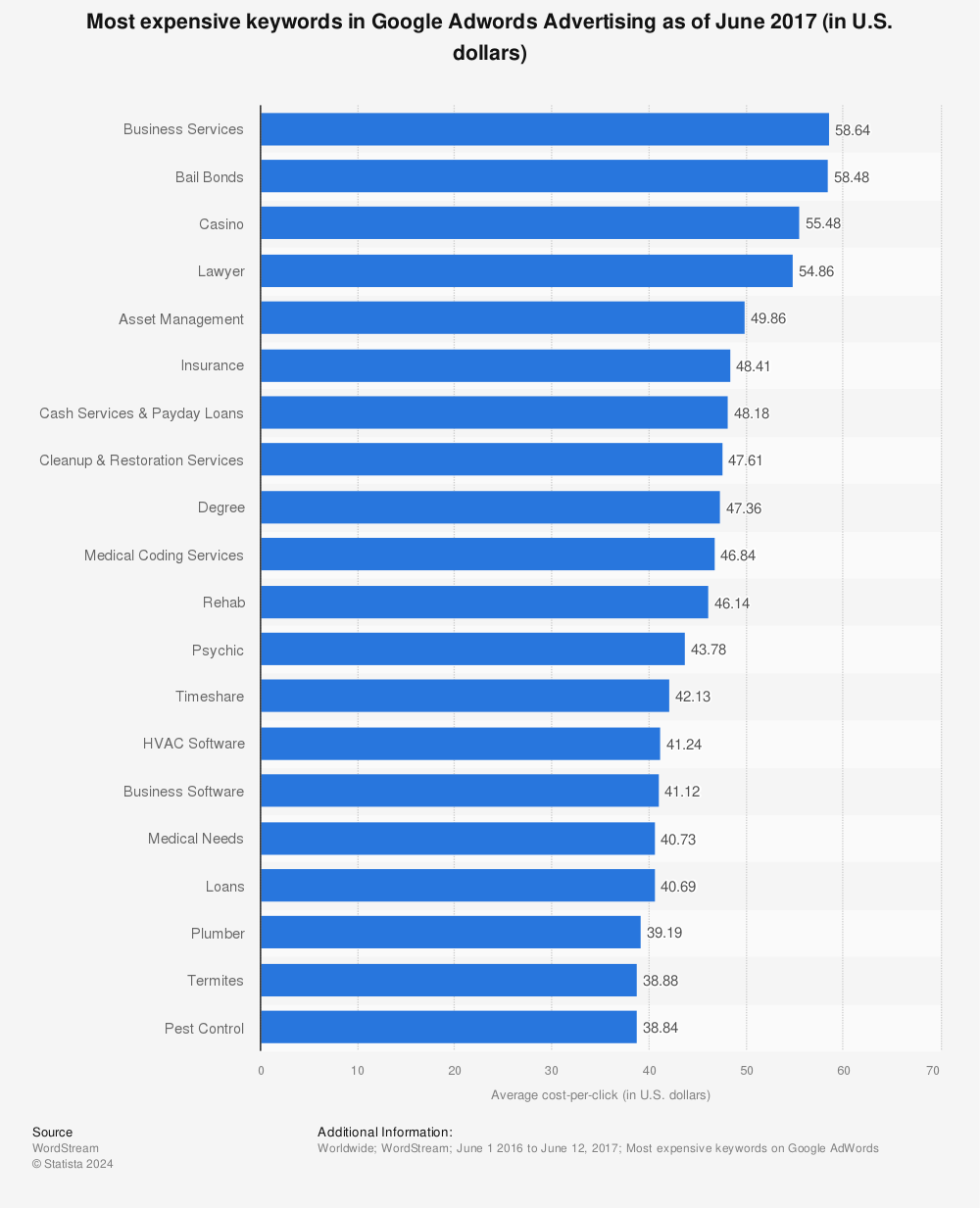Keyword advertising is one of the most powerful tools in a small business owner’s toolbox. It can help you attract more attention to your brand and build the success of your business. What is keyword advertising? What does it do? How do you use it? In this article, we’ll shed some light on this valuable marketing tool.
Keyword advertising refers to a type of advertising use on search engines that uses keyword research. By finding out what keyword searches are the most pertinent to the products and/or services your business offers, you will be able to place bids to place ads for your business within the search results of relevant keywords. For instance, if your business sells woman’s formalwear, you will be able to ensure that people who are searching for keywords that pertain to woman’s formalwear, such as “evening gowns” and “little black dresses” will see advertisements for your business. Virtually all search engine marketing is based on keywords. Selecting the right keywords for your advertising purpose can make a huge difference in the success of your ad campaigns.
Extremely Relevant Keywords: The Most Crucial Element of Keyword Advertising
The most important aspect of keyword advertising is finding the best and most relevant keywords to bid on. The more relevant your keywords are to whatever it is that your business offers, the more effective your online marketing campaign will be.
The best way to go about utilizing keyword advertising is to first choose the keywords that relate to your business the most. Once you do that, you can then create text ads that utilize those words. Then, when visitors click on your advertisements that they see in the Search Engine Results Page (SERP), you will pay whatever the amount was that you bid on the keyword. You’ll also get a discount if your ads are viewed as high quality by the search engines. This process is referred to as pay-per-click (PPC) advertising.
Searching for Keywords
Keyword marketing is an important investment. Though you do have to spend money in order to bid on keywords and pay for any clicks that your advertisement receives, if it’s done right, the revenue that you generate from visitors clicking on those ads will translate to conversions that will make your investment in keyword advertising worth your while.
The amount of money that you invest in buying keywords when you advertise on search engines via bids is determined by how competitive a particular keyword is. The key to doing keyword advertising right is finding out which keywords aren’t highly competitive (which will make them less expensive), but that are still very relevant to your business and your website. You can do this through keyword research.
Building a successful pay-per-click keyword advertising campaign is very much dependent on finding highly valued keywords. There’s lots of software out there that can help you find and use the best keywords for your business so that you can effectively optimize your search engine advertising campaigns.

Find more statistics at Statista
How to Use Ad Groups for Keyword Advertising
In order for keyword advertising to be successful, it has to be highly organized. It isn’t enough to just create a list of keywords. If you want to see the highest return possible on your investment, grouping your keywords together effectively is crucial.
Grouping your keywords into a logically and semantically organized hierarchy will set you up for the easiest ad group creation possible. Organizing your keywords semantically will make creating your PPC ads a whole lot easier because you will be able to generate text for your ads that will apply to all of the related terms at the same time.
When you organize your keywords into small segments and by bidding on the most relevant keywords, you will be able to reap a ton of benefits for your pay-per-click keyword advertising campaign. Some of these benefits will include:
- Paying less per click for your keywords
- A better quality score
- Improved rankings for your ads
- A better click-through rate
Keyword Advertising Tips for Small Businesses
Need some more help generating an effective keyword advertising campaign? Here are some helpful tips that will put you on the right track to generating a keyword advertising campaign that will garner tons of success.
Asses your books. All PPC budgets have a limit. If you’re a small business owner, you want to make sure that you reign in your spending so that you don’t end up going belly-up on your PPC advertising campaign. Make sure you look over your books and figure out how much you can comfortably afford to spend on your keyword advertising campaign. Don’t push yourself to the limit. You have a lot of expenses, and you don’t want to make your PPC campaign put you in financial ruin.
Examine Your Best Performing Keywords. Do some research and find out which keywords you are currently using are giving you the most impressions. Try to target those keywords for your PPC campaign. They are already yielding results, and they will yield even more if you use them for your keyword advertising.
Make Use of Ad Extensions. Ad extensions are an excellent way to get more real estate for your ads. They’re also a great way to increase your conversion rates. Don’t just rely on your phone number and address to get found locally. Make those ad extensions meatier by using the power of being local. Using extensions will get you much more attention and boost the success of your PPC campaign – and your business.
Put Your Zip Code in Your Display URL. Add your zip code into your URL to make your ads really pop. When people in your area are searching for the products and/or services that your business offers, they’ll be able to see exactly where you are located right from the URL.
Keyword advertising, if done right, can make your website more visible and take the success of your business to the next level.
